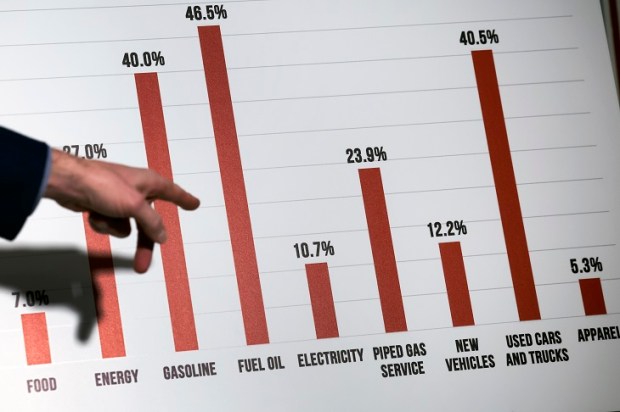Australia’s proposed movement towards creating a third category of employee (by way of granting ‘employee’ rights to gig workers) is misguided. It has already caused chaos in the UK and undermined the fabric of the commercial economy.
We in the UK self-employed community have been trying to get the UK to follow Australia’s lead for years. However, it appears Australia is about to implement a policy that we’ve already proven is a disaster in the UK.
The UK is currently embroiled in a mess around employment status for rights and taxation – issues that Australia has largely resolved. Some 20 years ago Australia solved the differential tax issue between the employed and self-employed that largely drove worker misclassification, but we in the UK are yet to follow your lead.
We made our situation worse in 2021 when our Conservative government allowed the UK ‘Off-payroll’ working rules to be implemented in the private sector. These are rules designed to crack down on ‘deemed employment’, which forced hiring firms to make status determinations and be liable for the tax if they got it wrong. It didn’t go well.
On September 23, 2022, the UK government signalled it would repeal this law in April 2023, reverting to less destructive tax laws for preventing ‘deemed employment’, colloquially referred to as ‘IR35’. Despite making the sensible decision, chaotic political events in the UK resulted in the Chancellor being replaced and, on 17 October 2022, the repeal was cancelled. We are still in a mess.
My two-decade self-appointed role as ‘champion for self-employed UK contractors’ has resulted in my becoming an expert on a topic that should not even exist. That topic is the highly subjective and complex nature of determining employment status and the damaging effect it can have on the freelance economy. In taxation, this is the toxic world of ‘IR35’, which is currently political cancer for the Conservatives.
Determining employment status requires the consideration of a broad range of common law tests to consider whether a relationship is a contract ‘of service’ (employment) or ‘for services’ (self-employment). Unfortunately, despite over 50 years trying to evolve case law into something simple, we have ended up in a mess that damages the freelance economy.
For those with an interest in the legalities, our Court of Appeal (one tier down from our highest court), in a case called Atholl House (April 2022), correctly recognised the need to take into account relevant factors outside of the engagement between the worker and the hirer – for example, whether there has been a history of self-employment.
The UK tax authority (His Majesty’s Revenue and Customs or HMRC), sought to argue that such history should be ignored and that only a single engagement should be considered, but the judges declared that approach would be ‘myopic’.
Our second attempt at ‘reform’ was badly implemented and contained structural flaws. One flaw was that when HMRC enforced the law, the contractor ended up paying zero tax. Further, the hiring firm was/is suddenly required to retrospectively pay more and pay the contractors’ entire tax bill.
This colossal policy flaw resulted in large firms being so risk-averse that they banned using self-employed contractors and pushed their projects offshore. Can you blame them when faced with massive penalties and tax uncertainty?
It’s arguable that the UK government’s policy of forcing firms to do the status assessment solved some of the misclassification issues leading to false self-employment. But it also led to around one-third of genuinely self-employed contractors having their rights to be their own boss taken away from them.
The central problem is the uncertainty that has emerged from the case law.
In the UK, for tax purposes, someone can be employed or self-employed. But, for ‘rights’ purposes, we have a middle way called ‘Worker’. After many Worker-based cases reaching the Supreme Court (the UK’s highest court), we are in a position where this means ignoring the written contract in situations where there are standard form contracts and a lack of bargaining power.
On the one hand, this court-sanctioned approach is great because it stops the ‘armies of lawyers’ problem, where bad contracts are used to deny rights. But on the other hand, it is terrible because it undermines the fabric of a market-based economy – the commercial agreement.
Fortunately, in the Court of Appeal case regarding tax, this approach was ruled as not applying to tax cases, where the starting point is the contract. This decision aligns with the sensible Australian High Court decision in the Personnel Contracting case, which states that where the written agreement is comprehensive, one must look no further than the written contract. That’s great for certainty. In that regard, the UK has sensibly followed Australia.
But now we are hearing Australia wants to introduce a third or middle way of Worker status and copy the UK – something that will invariably undermine the great decision made by your High Court. This is daft and will just put barriers in front of businesses that are trying to flourish.
After spending 20 years trawling through the status jungle, seeking to find the holy grail definition of what it means to be self-employed, my conclusion is simple: ‘What does the contract say?’
I urge Australia not to take its law back into the jungle of uncertainty.
Dave Chaplin, CEO of ContractorCalculator, a UK contractor website, has been championing the self-employed for over two decades.
Got something to add? Join the discussion and comment below.
Get 10 issues for just $10
Subscribe to The Spectator Australia today for the next 10 magazine issues, plus full online access, for just $10.


























Comments
Don't miss out
Join the conversation with other Spectator Australia readers. Subscribe to leave a comment.
SUBSCRIBEAlready a subscriber? Log in